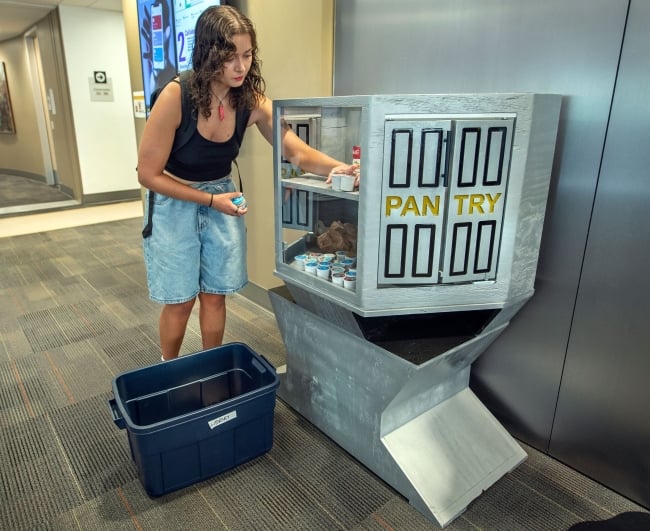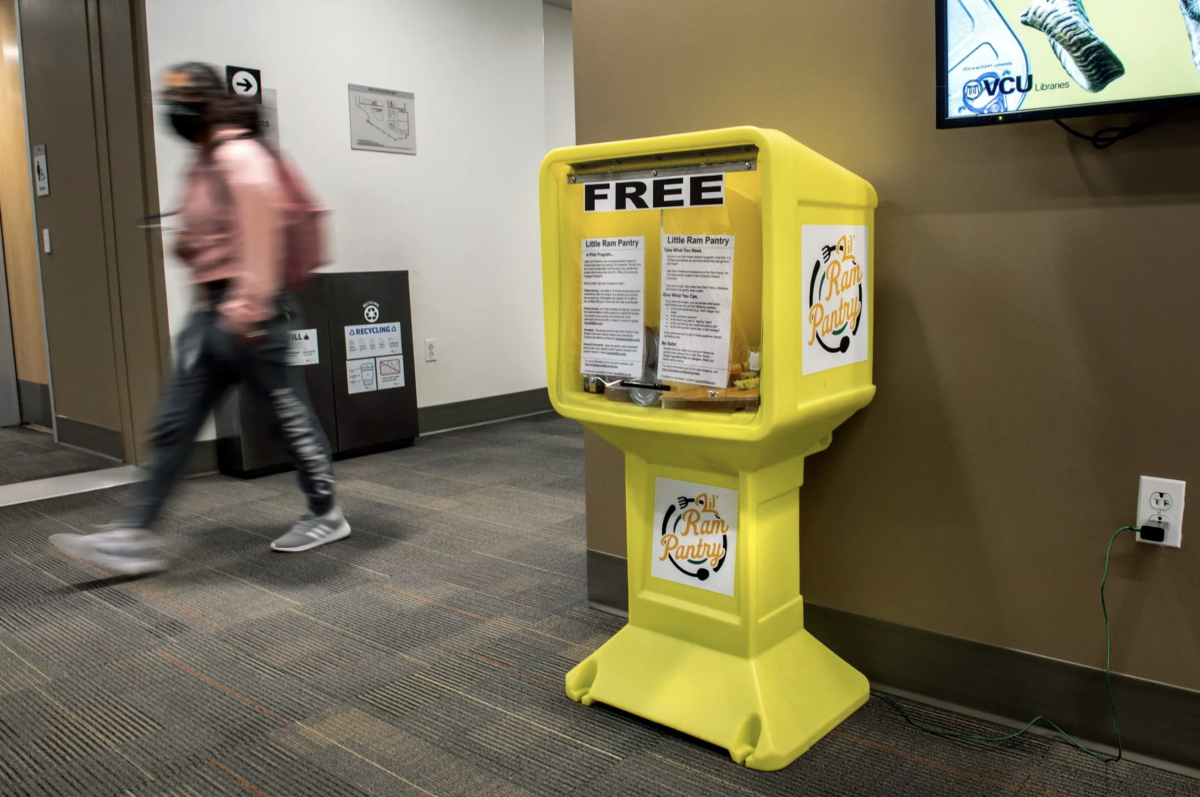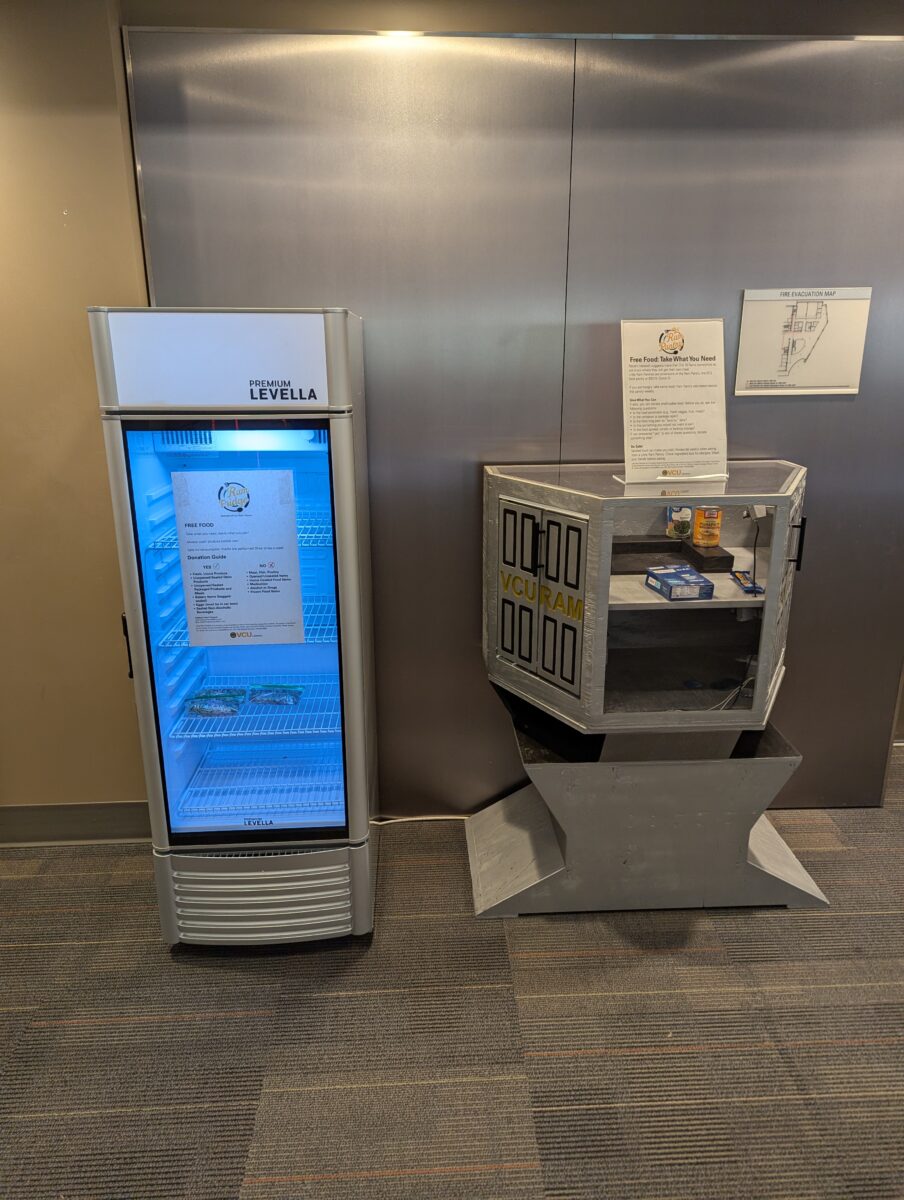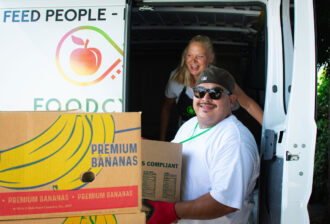About this project
Tracking and Diverting All-You-Can-Eat Cafeteria Food Waste and Loss from an Urban Public University in Central Virginia (FLW24-004)
Dr. John Jones, Virginia Commonwealth University - $499,915
Virginia Commonwealth University (VCU) is embarking on a transformative project to address the dual challenges of food waste and insecurity, establishing itself as a leader in sustainable food management. As a large urban university in Richmond, Va., with over 30,000 students, VCU recognizes the environmental, social, and economic impact of food waste and is committed to creating a model for sustainable practices that other institutions can follow.

This interdisciplinary project is led by John C. Jones, an assistant professor in the Center for Environmental Studies, joined by co-PI Tamer Nadeem, a professor in the Department of Computer Science in the College of Engineering, and Chrisa Arcan, an associate professor in the Department of Epidemiology in the School of Public Health. The team also includes additional investigators with expertise spanning engineering, sustainability, public health, and community engagement, ensuring a comprehensive approach to tackling food waste and insecurity. This diverse group of experts exemplifies the collaborative spirit required to develop innovative and impactful solutions.
Reducing food waste on campus is a priority in VCU’s recently released One VCU Sustainability Plan. As part of this commitment, VCU Dining Services has pledged to reduce and divert food waste from Shafer Dining Hall, the university’s all-you-can-eat cafeteria. This grant is pivotal in turning that commitment into action, enabling the implementation of cutting-edge solutions and fostering a culture of sustainability on campus.
This innovative project will leverage cutting-edge technologies and interdisciplinary collaboration to overhaul VCU’s food system. At the heart of the effort is the implementation of a state-of-the-art food waste tracking system within the university’s central dining hall. By combining advanced technologies such as RFID-tagged plates, machine learning, and high-precision measurement tools, the system will provide actionable insights into food preparation and consumption habits, allowing for smarter decision-making and significant reductions in waste.


A key component of the project is the establishment of a comprehensive food diversion network. Unused food from dining facilities will be redirected to on-campus Ram Fridges, as well as community refrigerators in the Richmond region, operated by RVA Community Fridge, which currently manages 14 locations. The initiative will also extend to two older adult living facilities associated with the VCU Health System. By piloting and perfecting this diverse system on campus, the project sets the stage for broader implementation across the community. Currently, engineers on the team are enhancing VCU’s pantry sensor network to collect real-time usage data for Ram Fridges. These improvements include the installation of inward-facing cameras to monitor fridge contents, enabling better inventory control and pattern analysis.
To support these efforts, the project will engage the VCU community through education and outreach initiatives. Real-time interactive dashboards will display waste statistics to raise awareness and encourage more sustainable dining habits. Workshops, curriculum integration, and community partnerships will further promote a culture of sustainability and environmental responsibility across campus and beyond.
Beyond its immediate impact, this project provides a foundation for future innovations, with plans to extend waste tracking and diversion systems to hospitals and athletic facilities. Advanced technologies like AI and machine learning will enhance efficiency through predictive analytics. Educational initiatives will be scaled regionally and nationally through partnerships, conferences, and open-access resources. By fostering collaboration among universities and community organizations, VCU aims to create a lasting impact on sustainable food systems, setting a new standard for institutions nationwide. By leveraging interdisciplinary expertise, advanced technology, and community collaboration, the initiative addresses critical challenges of waste reduction and food insecurity, fostering a more equitable and sustainable future for the university and the wider Richmond region.
